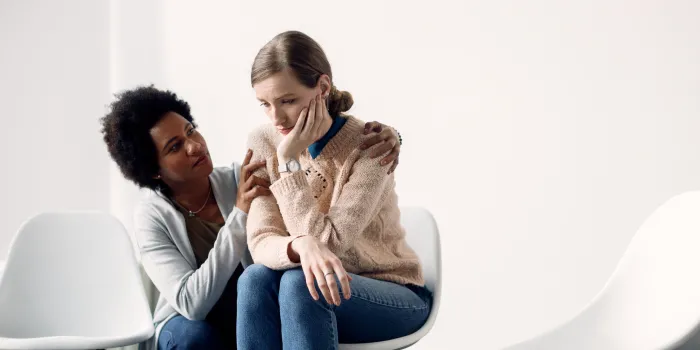Ask a Social Worker is a monthly column featuring questions from the community and answers from members of NHF’s Social Work Working Group. If you have questions for our social workers, send them to [email protected].
Dear Lucy,
I was recently diagnosed with an extremely rare blood disorder. I fear there’s hardly anyone else out there like me. How do I find people like me, and if I can’t, how can I be OK feeling alone in this?
You ask a great question! In my experience, connecting with others who have lived and understand what you are going through is the best way to feel OK living with a new diagnosis.
A recent article in Psychology Today highlighted the need for support for people living with rare diseases. In the article, the writer explained that living with a rare medical condition is really not that rare. In fact, an estimated 1 in 10 Americans have been diagnosed with a rare medical disorder. While each disorder may be unique, there are common challenges shared by these individuals, which include finding support and effective treatments for these rare conditions.
The article cited a recent study that looked at various forms of support to identify which would be most beneficial to people who have rare medical diseases. These included:
- Emotional support, which is described as receiving empathy and validation from others
- Informational support, which involves sharing practical advice
- Tangible support, which includes help identifying resources for needs such as transportation and financial assistance
- Companionship support, which takes place when we socialize with others and often centers around a leisure activity
Our medical care system typically focuses on providing tangible and informational support to families during clinic appointments, which is, of course, a necessary part of the treatment process. However, the researchers found that of the four areas of support considered, emotional support and companionship support were actually found to be the most beneficial for people coping with a rare medical diagnosis.
Fortunately for individuals and their families living with rare bleeding disorders, there is a well-organized patient-focused bleeding disorders community dedicated to providing opportunities for emotional and companionship support. The National Hemophilia Foundation (NHF) and its local chapters welcome people affected by all bleeding disorders to participate in their programs. There is even programming specifically geared toward individuals with rarer disorders and factor deficiencies.
At our treatment center, we recommend that our new patients and families consider attending the NHF Annual Bleeding Disorders Conference as a good starting point. This conference not only provides informational support but several opportunities to connect socially with other patients across the country. Scholarships are sometimes available to cover some of the cost of attendance.
If an in-person meeting seems overwhelming at this point, there are regular virtual meetings that are available online through the NHF website as well as other patient support foundations. Your local HTC and NHF chapter social workers are happy to share information on how to best connect with the support available in your area.
— Lucy Ramirez, MSW, LCSW
Ramirez is a social worker at Rush Hemophilia and Thrombophilia Center in Chicago and a member of the Social Work Working Group.

